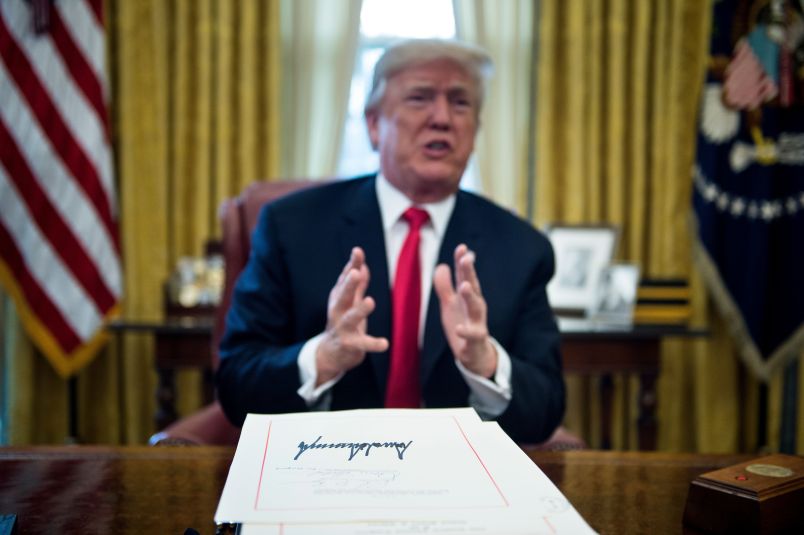Even as President Trump is arguing in his impeachment trial that the House should have taken him to court to enforce its subpoenas, he made new arguments to the Supreme Court Monday that House subpoenas against his accounting firm and bank are illegitimate and beyond the power of the legislative branch.
“Whatever powers Congress holds, it may not deploy them in a way that keeps the President from fulfilling the obligations of his office,” attorneys for the President wrote in a Monday brief. “Unleashing each and every House committee to torment the President with legislative subpoena after legislative subpoena is a recipe for constitutional crisis.”
The arguments come as Trump tries to fight off four subpoenas issued by House committees to his longtime accountant Mazars USA LLP and lender, Deutsche Bank.
Trump sued last year to prevent the financial institutions from complying with the House subpoenas, and is simultaneously fighting a separate case in which a New York grand jury issued a criminal subpoena to Mazars for his financial records.
But the President’s arguments in the House subpoena case – delivered in the brief by his lead impeachment defense attorney Jay Sekulow – diverge from those made in his ongoing Senate impeachment trial. There, the President’s attorneys and partisans in the Senate GOP caucus have argued that House Democrats failed to complete their investigation before bringing articles of impeachment to the Senate, saying that they should have been willing to sue to get the evidence they wanted.
At the Supreme Court, the Trump team contends that lawsuits launched by the House for the President’s financial records fulfill an illegitimate “law enforcement” purpose and not a “legislative” one.
“Legislative subpoenas may not be used to engage in law enforcement, to investigate into areas where Congress may not validly legislate, and to probe into issues that are not pertinent,” the brief reads. “These four subpoenas flunk this test under the Court’s decisions resolving disputes over ordinary legislative subpoenas about routine congressional topics. But the subpoenas under review here are anything but ordinary, and the congressional investigations that produced them are certainly not routine.”
Trump also accused the House in its brief of failing to properly authorize the subpoenas. The House held no full vote on the investigation into Trump before the subpoenas were issued, which the President has seized on to argue that the basis for the probe is illegitimate.
“Whether Congress is empowered to subpoena the President’s personal records—at all—in aid of legislation and, if it is, whether these subpoenas exceed that authority are exactly the kind of interbranch disputes the Court should avoid resolving until Congress has made clear that it understands the stakes and is prepared for judicial resolution,” the brief reads. “The weighty constitutional issues presented by this dispute should not be resolved until Congress does so.”
The Supreme Court will attempt to resolve the issue this term. The exact dates for oral arguments have not yet been scheduled, though they are expected to be held in late March.
Read the brief here:






